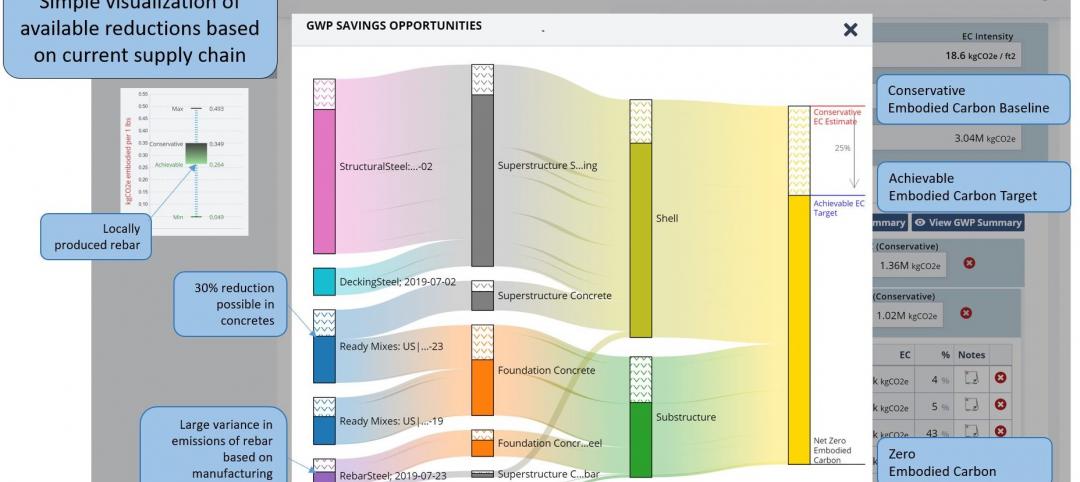WSP, the international engineering design and environmental consulting firm, will double its size in the Houston market by combining its existing operations there with the office of ccrd, a national MEP engineering and commissioning firm based in Houston, which WSP acquired last November.
The combined office, with about 60 employees, will be managed by David Sinz, PE, a vice president and managing director of WSP’s Houston office. David Duthu, PE, who was managing director of ccrd’s Houston office, is now co-leader of WSP’s national Science + Technology practice.
Aside from bolstering its Houston operations, the ccrd acquisition expanded WSP’s presence into markets throughout the Southeast and south-central U.S., according to WSP’s executive vice president Steve Burrows. (Founded in 1980, ccrd has offices in Austin, Texas, Dallas, Denver, Houston, Miami, Nashville, Tenn., Orlando, Fla., Phoenix, Richmond, Va., Kansas City, Mo., and Washington, D.C.)
David Cooper, PE, president of WSP’s U.S. Property & Building sector and chief commercial officer for WSP|Parsons Brinckerhoff, called the combination in Houston “a natural step forward.” He says the acquisition so far “has been everything both firms hoped it would be.”
Montreal-based WSP Global has 500 offices in 39 countries. Last Fall, it agreed to pay Balfour Beatty US$1.24 billion in cash to buy Parsons Brinckerhoff, a deal that increased WSP’s workforce by 77% to 31,000.
The purchase price for ccrd was not disclosed.
Separately, WSP and ccrd had already been active players and competitors in Houston’s healthcare, science, and technology sectors, having worked on innumerable hospitals, government, energy, and research construction projects. They are also active in Houston’s hospitality, commercial, residential, and industrial sectors.
Related Stories
Office Buildings | Mar 3, 2015
Former DuPont lab to be converted into business incubator near UPenn campus
The new Pennovation Center will provide collaborative and research spaces for educators, scientists, students, and the private sector.
K-12 Schools | Mar 2, 2015
BD+C special report: What it takes to build 21st-century schools
How the latest design, construction, and teaching concepts are being implemented in the next generation of America’s schools.
Codes and Standards | Mar 2, 2015
Proposed energy standard for data centers, telecom buildings open for public comment
The intent of ASHRAE Standard 90.4P is to create a performance-based approach that would be more flexible and accommodating of innovative change.
K-12 Schools | Mar 1, 2015
Are energy management systems too complex for school facility staffs?
When school districts demand the latest and greatest, they need to think about how those choices will impact the district’s facilities employees.
Industrial Facilities | Feb 27, 2015
Massive windmill will double as mixed-use entertainment tower in Rotterdam
The 571-foot structure will house apartments, a hotel, restaurants, even a roller coaster.
Office Buildings | Feb 26, 2015
Using active design techniques to strengthen the corporate workplace and enhance employee wellness
The new Lentz Public Health Center in Nashville, Tenn., serves as a model of how those progressive and healthy changes can be made.
K-12 Schools | Feb 26, 2015
Should your next school project include a safe room?
Many school districts continue to resist mandating the inclusion of safe rooms or storm shelters in new and existing buildings. But that may be changing.
K-12 Schools | Feb 26, 2015
Construction funding still scarce for many school districts
Many districts are struggling to have new construction and renovation keep pace with student population growth.
K-12 Schools | Feb 26, 2015
D.C.'s Dunbar High School is world's highest-scoring LEED school, earns 91% of base credits
The 280,000-sf school achieved 91 points, out of 100 base points possible for LEED, making it the highest-scoring school in the world certified under USGBC’s LEED for Schools-New Construction system.
K-12 Schools | Feb 25, 2015
Polish architect designs modular ‘kids city’ kindergarten using shipping container frames
Forget the retrofit of a shipping container into a building for one moment. Designboom showcases the plans of Polish architect Adam Wiercinski to use just the recycled frames of containers to construct a “kids city.”

















